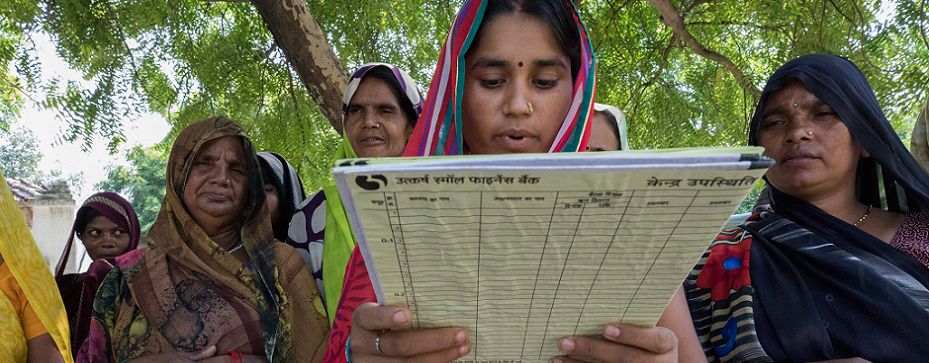SMEs generate income and create the majority of jobs—between 70 and 95 percent of new employment opportunities—in emerging economies.
SME Finance
 A worker rolling a spool of cable across the factory floor at Reroy Cables, an IFC beneficiary in Tema, Ghana. © Nyani Quarmyne, Panos/IFC
A worker rolling a spool of cable across the factory floor at Reroy Cables, an IFC beneficiary in Tema, Ghana. © Nyani Quarmyne, Panos/IFC
Access to financial services for SMEs remains severely constrained in many developing countries, restricting business growth. Owners and entrepreneurs report access to capital to be one of their toughest challenges, one that sometimes outranks electricity shortages and other concerns. As estimated by IFC’s MSME Gap Assessment report, the global gap in such funding is $5.2 trillion.
We use investment and advisory services to support financial intermediaries in reaching out to the SME sector more effectively and efficiently. On the investment side, IFC helps to increase businesses’ access to financial services by providing funding for equity, loans, and mezzanine finance to institutions that focus on SME lending.
As an example of our investment and advisory services for SMEs, IFC created the Global SME Finance Facility in partnership with the United Kingdom and Dutch governments. This facility strengthens financial institutions' abilities to address the needs of SMEs in emerging markets. Since 2012, the facility has funded about 100 projects. Projects ease access to finance for SMEs in some of the most challenging markets.
Videos
Microfinance
 Malti Devi speaks to neighbors and members of her lending group in Belwa Village, India. © Dominic Chavez / International Finance Corporation
Malti Devi speaks to neighbors and members of her lending group in Belwa Village, India. © Dominic Chavez / International Finance Corporation
Access to financial services is key for economic development. Savings, insurance and basic payment services improve livelihoods, increase growth, and foster innovation. Through its Financial Institutions Group (FIG), IFC helps to increase the availability and affordability of financial services, particularly to micro, small, and medium enterprises.
IFC plays a major role in creating efficient microfinance markets and is the largest international funder in the sector. Over 20 years, IFC has delivered significant global impact with more than 650 microfinance investments totaling $6.2 billion and 330 micro and digital finance advisory projects in 95 countries.
Financial inclusion, particularly microfinance, enables the poor to start saving, build businesses, and strengthen communities. Through our Financial Institutions Group (FIG), IFC helps to increase the availability and affordability of financial services, particularly to micro, small, and medium enterprises.
While microfinance helps to expand job opportunities, concerns about over-indebtedness, data privacy, financial literacy, among other issues can put customers at risk in some markets. IFC leads and supports global efforts to advance responsible finance practices, which means providing transparent, inclusive, and customer-centered products and services. By doing so, IFC is helping to mitigate customer risks and build financial resilience, both of which are foundational to sustainable and prudent growth.
IFC supports responsible finance practices by:
- Conducting due diligence on its partner institutions, including to ensure they have know-your-customer (KYC) procedures in place.
- Working with partner institutions and stakeholders to incorporate responsible finance practices in key aspects of business operations, including training and capacity building, risk management efforts and digital finance strategies.
- Collaborating with private sector investors and innovators in digital finance to refine evolving actions in the Guidelines for Responsible Investing in Digital Financial Services.
Disruptive technologies are radically changing the financial services industry, forcing traditional microfinance business models to adapt and changing the economics of delivery to benefit the unserved and underserved. This presents opportunities and challenges for the sector, and IFC actively champions and supports responsible, innovative solutions and partnerships that can reach the underserved. Since 2007, IFC expanded its microfinance portfolio to include engagements in digital financial services (DFS). Through a seven-year joint initiative with the Mastercard Foundation, IFC reached an additional 100 million adults through DFS in Sub-Saharan Africa.
Despite progress, 1.7 billion adults lack access to basic transaction accounts. Those without access are largely concentrated in Asia and Sub-Saharan Africa and are disproportionately poor and female. In emerging markets, 70 percent of micro, small and medium-sized enterprises (MSMEs) lack adequate financing to thrive and grow. The financing gap for formal MSMEs is an estimated $5.2 trillion and for informal MSMEs its $2.9 trillion.
IFC will continue to help create efficient microfinance markets by focusing on the following:
- Building sustainable financial service providers that reach the un- and underserved.
- Supporting digital innovations that responsibly expand access and inclusion.
- Reaching persistently un- and underserved and vulnerable populations, particularly in fragile and conflict-affected states and IDA countries.
- Creating solutions that address real sector challenges and prevent structural exclusion.
IFC is a founder and lead implementing partner of the G20 Global Partnership for Financial Inclusion as well as a co-founder of the sector-wide Responsible Finance Forum.
